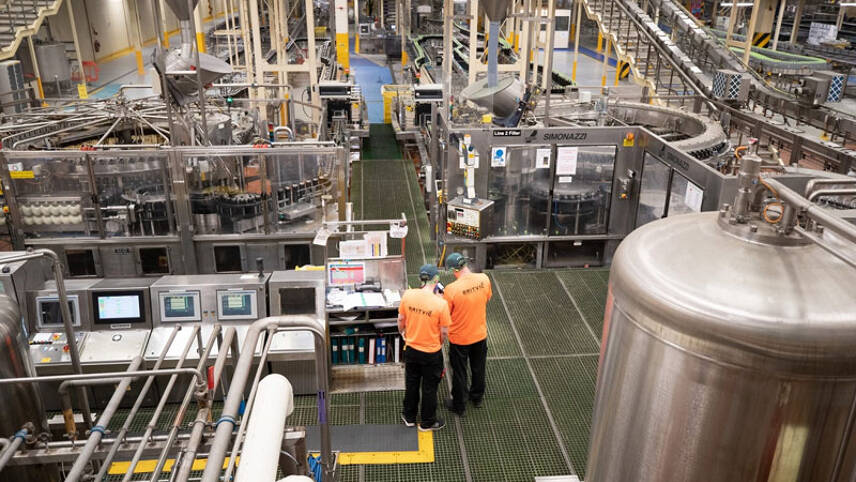Register for free and continue reading
Join our growing army of changemakers and get unlimited access to our premium content

Image: Britvic
The National Grid’s Electricity System Operator (ESO) has confirmed to the Telegraph that it will extend its Demand Flexibility Service, which was first trialled with homes last year, to the private sector.
The idea of the scheme is to reward energy users for avoiding energy use during peak times by incentivizing them with lower bills. Reducing energy use during peak times can help build flexibility into the energy system and reduce pressures on the grid. As such, this approach is becoming part of the ESO’s approach to maintaining energy security and preventing blackouts.
“We are particularly keen to engage industrial and commercial users of energy,” said the ESO’s director of corporate affairs Jake Rigg, speaking to media about the Service’s design for the coming winter.
“The demand flexibility service was principally – not exclusively, but principally – used by households last winter. Whilst we still very much want that to continue, we’re really pushing to get industrial and commercial users.”
Rigg argued that the Scheme would be helpful for industries that are struggling with high bills as the price crisis continues. Make UK, a major trade body for manufacturers, stated last September that 42% of its members had seen their electricity prices double within 12 months. More than one in ten had reduced operating hours due to mounting costs.
The ESO is accepting submissions to its consultation on the next steps for the Demand Flexibility Service until 17 July. It will then publish a formal agreement before winter.
Popular service
A total of 22 trials of the Demand Flexibility Service took place over autumn and winter 2022/3.
The ESO confirmed last month that 1.6 million homes and businesses participated.
In total, these buildings delivered 3,300MWh of electricity reduction.
Electricity saved in Southern England, the East of England and the East Midlands – the three most engaged regions in the scheme – could power some 3.3 million homes.
Participation in the Service was voluntary and the terms were set by energy suppliers. The ESO has stated that any extension to larger businesses will also be on a voluntary basis.


Please login or Register to leave a comment.